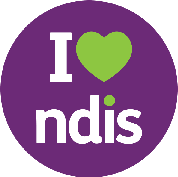If your disability makes it harder to study, find work, or maintain a job, the NDIS may fund additional supports to help you reach your goals. But understanding what the NDIS will and won’t fund can make a huge difference when preparing your plan.
At Centre of Hope, our experienced Support Coordinators and Psychosocial Recovery Coaches help participants across NSW identify the right work and study supports, so your NDIS plan truly reflects your needs and ambitions.
Why study and work goals matter in your NDIS plan
Education and employment build independence and confidence. The NDIS can fund disability-related supports that help you take part in school, TAFE, university, or employment, but it doesn’t replace mainstream responsibilities.
For example, schools and employers still need to make reasonable adjustments. The NDIS focuses on personalised supports you need because of your disability.
If you’re unsure where to begin, our guide Your Participant Journey with NDIS – From Application to Ongoing Plan Use explains each stage in detail.
NDIS supports for students
When studying, you can receive extra support so you can access education like anyone else. These may include:
- Assistance with personal care while at school or university.
- Support workers for transport between classes or campuses.
- Help to learn safe and accessible routes to and from study locations.
- Training for teachers or staff to better understand your support needs.
These supports are designed to remove barriers, not to replace what schools or universities must already provide.
❌ What the NDIS won’t fund for study
The NDIS doesn’t cover costs that are the responsibility of educational institutions or general living expenses. These include:
- Tuition or course fees, textbooks, and stationery.
- Tutor sessions that are part of normal education.
- Equipment or technology that the school or uni should supply.
- Uniforms, excursions, or camps.
Learn more about what’s generally covered or excluded in NDIS Funding in Australia – What the NDIS Covers and What It Doesn’t.
NDIS supports for work
Supports for employment help you find, start, or maintain a job that suits your abilities and interests.
You might be eligible for NDIS funding if you need:
- A job coach or workplace mentor to build your capacity.
- Personal care while at work.
- A vocational assessment to match you with suitable roles.
- Assistance to try work placements beyond school programs.
These supports focus on helping you achieve sustainable employment and increase your independence.
❌ What the NDIS won’t fund for work
NDIS will not pay for what’s considered an employer’s responsibility, such as:
- Wages, superannuation, or general training.
- Workplace adjustments required under employment law (e.g., ramps, ergonomic desks).
- Equipment provided to all staff.
- Recruitment or HR costs.
For more about the intersection between NDIS and employment, see Top NDIS Services You Didn’t Know You Could Access.
How the NDIS decides what to fund
Every support request goes through the NDIS Reasonable and Necessary Criteria, which considers:
- Is the support directly related to your disability?
- Does it help achieve your goals (such as finishing study or gaining employment)?
- Is it effective and value for money?
- Could this support reasonably be provided by a mainstream service or family?
To make the process easier, our article NDIS Funding in NSW – What You’re Entitled to & How to Use It breaks down how funding decisions are made locally.
Steps to include work or study supports in your plan
- Set a clear goal in your NDIS plan, for example, “I want to finish my Certificate III in IT” or “I want to find part-time work in retail.”
- Gather supporting evidence, such as reports from your support coordinator, teachers, or workplace mentors.
- Talk with your Support Coordinator about what’s realistic and reasonable under NDIS guidelines.
- If funding is refused, request an internal review within three months.
Our expert team can guide you through this process. Explore our NDIS Services to see how we can help you prepare and manage your plan effectively.
Real-life success stories
- Anton: A wheelchair user starting university. His plan funded support to explore accessible transport routes and connect with campus Disability Services.
- Bilal: A 15-year-old who wanted work experience on weekends. NDIS funded a mentor to help him build skills for part-time employment.
- Jasmin: Working in a bank, Jasmin used NDIS-funded personal care during lunch to maintain full-time hours.
These examples show how NDIS supports for work and study empower participants to pursue their ambitions with confidence.
Need help building your work or study goals?
Our Support Coordination team and Recovery Coaches work closely with you to make sure your plan is practical, goal-oriented, and sustainable.
We’ll help you:
- Define study and work goals aligned with your interests.
- Gather the right evidence for NDIS planners.
- Understand the balance between NDIS and mainstream responsibilities.
You can learn more in Empowering Independence – How Support Coordination Facilitates Community Integration.
👉 Book an appointment
👉 Make a referral
👉 Or explore more helpful guides in our NDIS Blog
At Centre of Hope, we’re passionate about helping you build skills, gain independence, and achieve your dreams, whether that’s in the classroom or the workplace.








